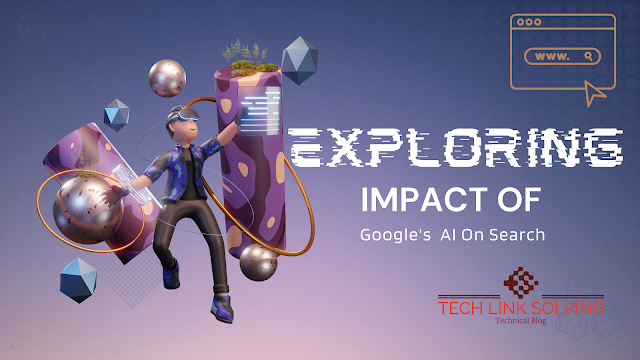Artificial Intelligence (AI) has truly revolutionized how we interact with technology every single day. From the smart assistant in your phone to the personalized recommendations you see online, AI has woven itself into the fabric of our digital lives. At the forefront of this revolution is Google, a global leader in AI research and development. In this post, we’ll dive deep into how Google leverages AI in search, exploring the technologies that power its intelligent results and the exciting recent developments, including Google Bard AI.
How Google Uses AI in Search: Understanding the Impact
Google Search remains the world’s most popular search engine, handling billions of queries daily. The sophisticated algorithm behind it works tirelessly to deliver the most relevant results. This algorithm considers numerous factors, such as your location, search history, and the overall quality of web pages.
In recent years, Google has significantly deepened its integration of AI into its search engine to enhance the user experience dramatically. A key example is its use of Natural Language Processing (NLP). NLP allows Google to truly understand the intent behind your search queries, not just the keywords. This means Google can provide more accurate and relevant results, even for complex or nuanced questions.
Another pivotal AI technology in Google Search is the RankBrain algorithm. RankBrain employs machine learning to analyze search queries and determine the most relevant results. What makes it powerful is its ability to learn from user behavior over time, continuously refining and adjusting search results to better meet user needs.
Exploring Google AI Beyond Search
Google has been making substantial investments in AI research and development for many years. In 2015, the company established Google AI as a dedicated division focused solely on advancing AI technology. This initiative has led to significant contributions to the field, such as the development of TensorFlow, a widely used open-source machine learning library.
One of the most impressive undertakings from Google AI is Google DeepMind. DeepMind is an advanced AI system capable of playing complex games like Go and Chess at a superhuman level. It achieves this remarkable feat by utilizing deep neural networks to learn extensively from experience, consistently improving its performance over time.
The Rise of Google Bard AI and Its Implications
Google Bard AI represents a very recent and highly publicized development from Google AI. Bard is an innovative AI system specifically designed to write poetry in a variety of styles and genres. It achieves this by combining advanced machine learning techniques with sophisticated natural language processing, enabling it to analyze existing poems and generate creative new ones.
The potential applications for Bard are vast and exciting. Beyond assisting human poets, it could be used for generating creative content in various fields, including marketing and advertising. Bard marks a significant leap forward in the realm of natural language generation and could very well pave the way for even more sophisticated and creative AI systems in the near future, further solidifying Google’s impact on AI in search and beyond.
Conclusion: The Ever-Evolving Impact of Google’s AI
Google’s strategic integration of AI in its search engine and its substantial investment in AI research and development continue to push the boundaries of what’s possible with artificial intelligence. Google Bard AI is just one compelling example of how AI can be leveraged to create groundbreaking and exciting applications.
As AI technology continues its rapid evolution, we can undoubtedly anticipate even more transformative developments from Google and other leading technology companies. The future of search with Google AI promises to be more intelligent, personalized, and efficient than ever before.
